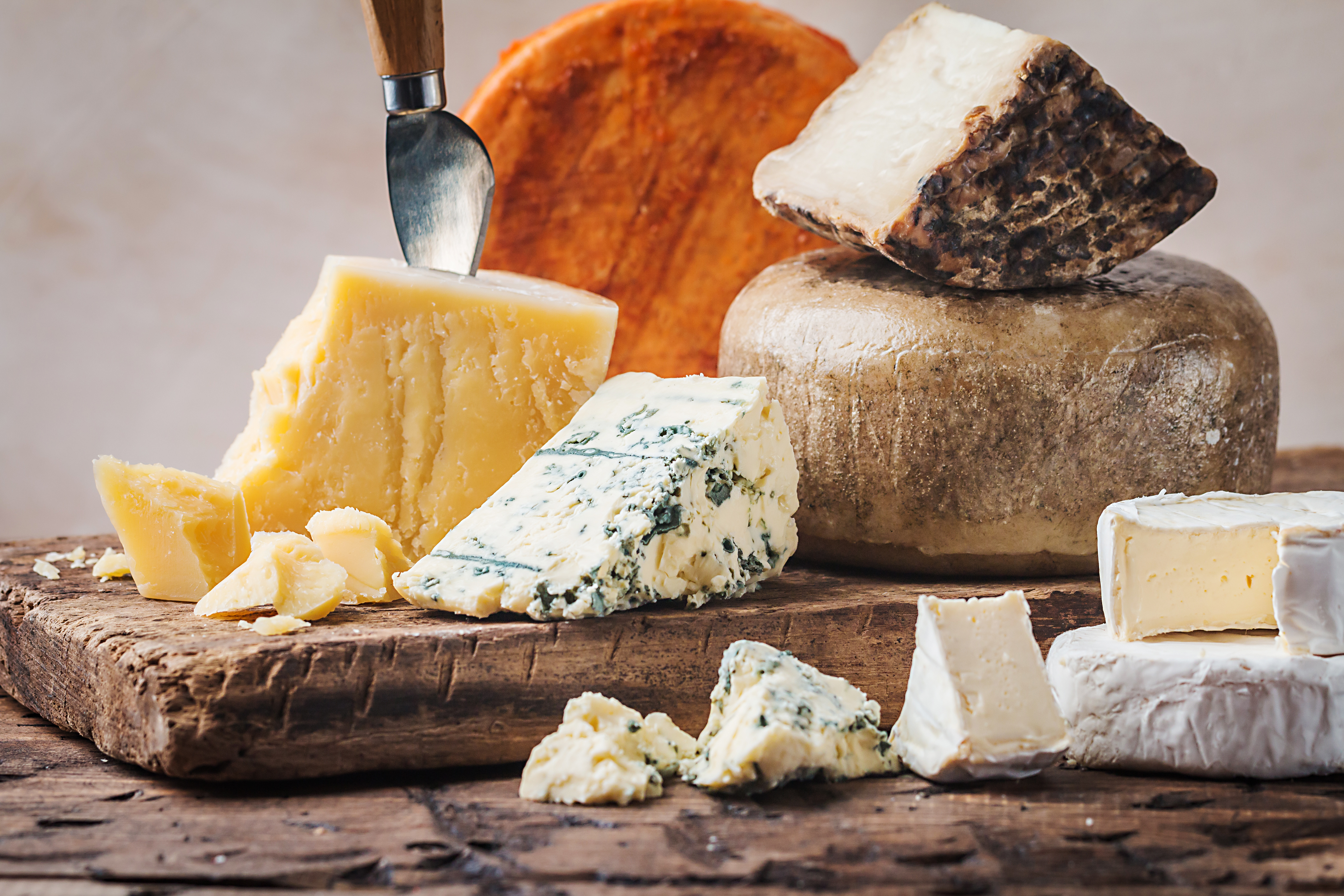
If you visit a grocery store or deli to looking for cheese, you’ll be spoiled for choice. Cheeses don’t just vary widely in their taste and texture though, as these dairy products also differ significantly in their nutritional profile. From their calorie and fat content to the amount of calcium they contain, no two cheeses are the same nutritionally. If you aren’t sure which cheese is your best bet for weight loss, or you want to achieve healthier bones or blood pressure, read on to find out the most suitable choice for your needs.
Lactose Intolerance
Around 25% of Americans have a degree of lactose intolerance, which causes stomach pain, bloating, gas and diarrhea within two hours of eating foods that contain lactose. If you are affected by this unpleasant condition, you needn’t avoid cheese altogether. Luckily, hard cheeses that are aged, such as Cheddar, Swiss and Parmesan, contain very little lactose. However, if you have severe lactose intolerance, brands of cheese that advertise they are lactose-free may be necessary, as even the small amounts of lactose in low-lactose cheeses may bring on your symptoms.
Diet For Weight loss
An estimated 69% of adults in the United States are overweight or obese. If you weigh more than advisable, you may decide to avoid cheese altogether, as this dairy item is often assumed to be too high in fat and calories to fit in with a diet for weight loss. However, not all cheeses are calorific. For instance, an ounce of low-fat cottage cheese provides just 29 calories and a similar quantity of low-fat soft cheese contains 40 calories. This compares to 113 calories in an ounce of Cheddar. If you aren’t a fan of cottage cheese or spreadable cheese, feta, mozzarella and Camembert are all lower fat options to hard cheeses.
Higher Protein Requirements
Although most people get more protein than they need, if you are an older adult, an athlete or you are recovering from ill-health or surgery, you may need more protein. The best cheeses to opt for when you need to up your protein intake are those with a lower water content. Parmesan is ideal, providing around 10g of protein per ounce, while a similar serving of other hard cheeses give you around 6g. The likes of Cheddar and Swiss cheese are still preferable for protein intake than softer cheeses.
Low-Fat diet
A low-fat diet may aid weight loss, reduce your risk of heart disease, diabetes and certain cancers, and help to control symptoms related to gall stones. Quark, which is similar to farmer cheese, is a relatively new cheese in the US, but it is virtually fat-free. Low-fat cottage cheese is another good contender for a low-fat diet. If you still want to eat hard cheese, just limit your portion size to an ounce.
Reduced Salt Diet
Surveys show that 90% of Americans eat too much salt. Diets high in salt are linked to an increased risk of raised blood pressure, which makes you more likely to experience a heart attack, stroke or kidney damage. Eating too much salt may also be detrimental to your bone health, making you more prone to osteoporosis. Even if you don’t add salt to your cooking or at the table, to cut your salt intake significantly, you need to reduce your intake of foods high in salt. Many cheeses have a high salt content, but quark, cottage cheese and cream cheese are all low-salt options.
Increased Calcium Needs
More than 50 million US adults have low bone mass or osteoporosis. Upping your calcium intake can help slow further bone loss, with dairy produce offering one of the best sources of calcium in your diet. After Parmesan, Swiss and Gruyere are your best option for calcium, though Cheddar is also a good bet.
Dairy-Free Diet
Up to 3% of infants are intolerant to dairy proteins, though 75% outgrow it by the age of three. If your kids cannot tolerate dairy produce or you have a dairy intolerance yourself, there are various dairy-free cheeses to choose from. Cheeses based on soy, rice, nuts and nutritional yeast are available, and although they are noticeably different from cheese in taste and texture, these dairy-free products make a good substitute.
If your cheese selection needs to consider more than just your flavour preference, you can now choose the right cheese with confidence. Thankfully, you can usually substitute one cheese for another in dishes, so there’s no need to compromise on your enjoyment when prioritizing your nutritional requirements.
